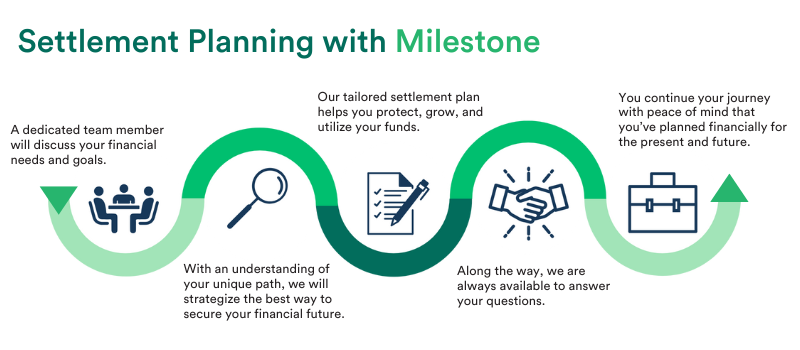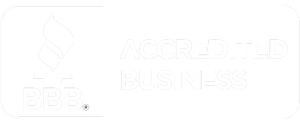It’s understandable if you feel both relieved and overwhelmed when your personal injury case is about to settle. What should you do with your settlement money? Should you invest it or put it in the bank? What about your government benefits like Medicaid and SSI – will you lose eligibility? For many people who will be receiving personal injury settlement money, working with an experienced settlement planner is the first step toward making informed financial decisions.
What is settlement planning?
Personal injury settlements can be paid out in various ways. The right strategy depends on your current lifestyle, finances, future needs, and other factors. A settlement planner will take a holistic look at your individual situation. They will then develop a tailored strategy for the incoming settlement. The goal is to help you meet both your immediate and future needs. Below are some examples of plaintiff settlement planning strategies.
Protecting your settlement
When a person receives a settlement to pay for future medical care, two primary risks are dissipation and catastrophic loss. A domestic asset protection trust (DAPT) protects against judgements, creditors, bankruptcy, divorce, business failure, and liability from accidents. Anyone can get a DAPT at any time. However they are especially useful for some people who will obtain a personal injury settlement and want to protect the assets.
Complying with government benefits
A settlement planner will also consider a person’s eligibility for government benefits. Many government programs that provide needs-based benefits have strict financial eligibility limits. Careful planning can ensure a beneficiary does not lose eligibility for these programs. A special needs trust, for example, enables individuals to receive the proceeds of a settlement while keeping their benefits. If you have Medicaid, SSI, or other means-tested benefits, this type of trust may be helpful.
Some plaintiffs structure and invest their settlement money to help comply with the income thresholds of government benefits programs. Read more on that approach in the next section.
For Medicare beneficiaries, a Medicare set aside designates a portion of the settlement to pay for medical expenses that would otherwise be payable by Medicare.
How to Invest Settlement Money
Receiving a lump sum vs. periodic payments
If you do not need your whole settlement amount right now, you can break it up into smaller future (periodic) payments.
When deciding between receiving a one-time lump sum payment and periodic payments, it’s important to think about your personal financial goals and your plan for long-term financial security. By receiving guaranteed payments over time, you can manage your money more easily. You’ll also have peace of mind that you will continue to receive funds into the future. You can decide:
- How much of your settlement you need immediately,
- If the payments should come in for a set number of years or the rest of your life,
- How often you receive payments,
- The size of the payments, and
- Whether the amount should change over time.
Some plaintiffs chose to invest their settlement money by using an investment-backed structure. Others choose a traditional structured settlement annuity. One of our settlement planning consultants can help you weigh the pros and cons – and there’s no obligation when you reach out.
Professional planning for any settlement amount
If you’re receiving personal injury settlement money, it’s easy to think the amount is too small to require the help of a settlement planner. However, it’s important to make sure your settlement funds meet your current and long-term needs.

Settlement planning assists you in protecting and preparing financially for your settlement. The goal is always to maintain your quality of life, ensure your financial future, and provide the most benefit to you.
If you’re ready to discuss what to do with your settlement money, we can help. Contact Milestone for a no-obligation chat today.


